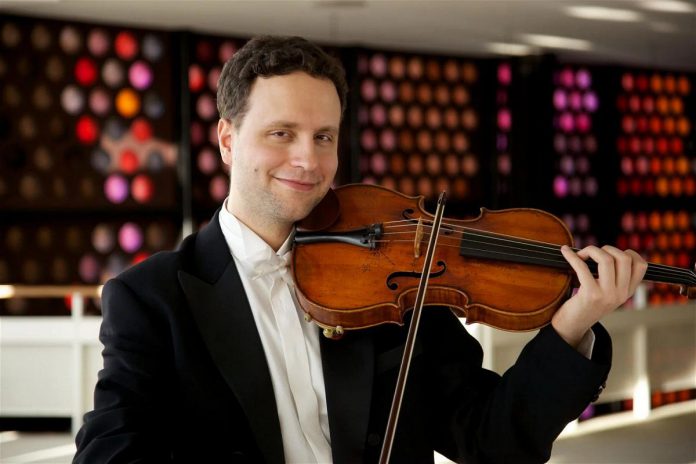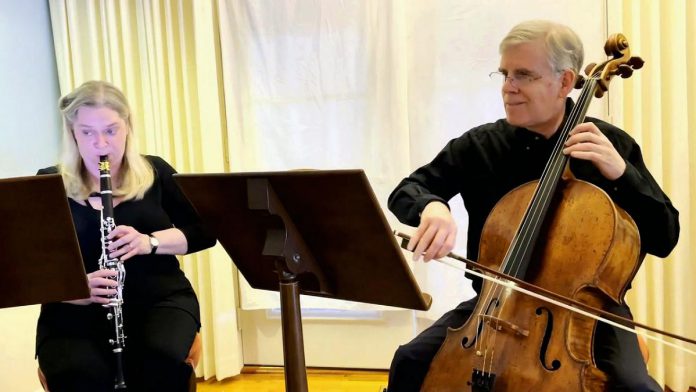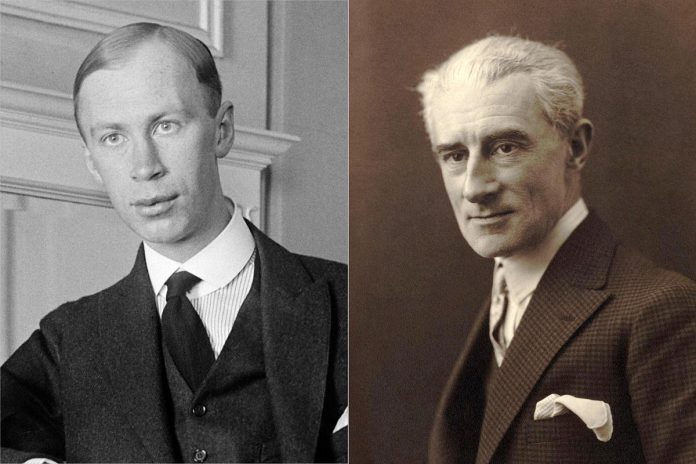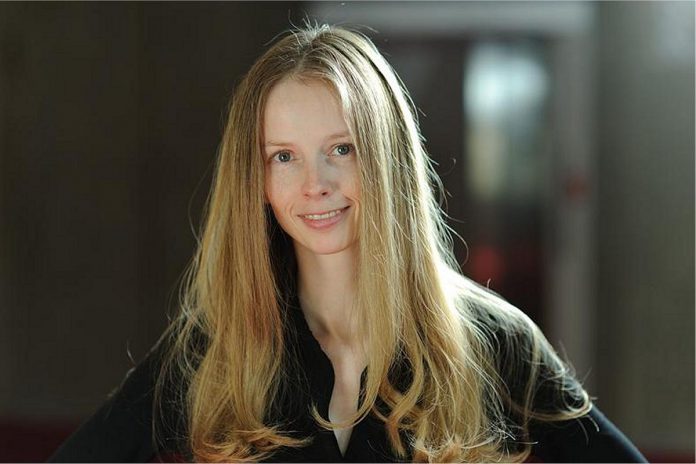
For the opening concert of its 2023-24 season this fall, the Peterborough Symphony Orchestra (PSO) will host world-renowned violist Máté Szücs to perform a new concerto created especially for him and the orchestra by Canadian composer Ronald Royer.
Along with Royer’s new concerto, the PSO will perform works by Russian composer Sergei Prokofiev, French composer Maurice Ravel, and Canadian composer Christine Donkin during “The Muse” concert at 7:30 p.m. on Saturday, November 4th at Showplace Performance Centre in downtown Peterborough. While many people think of “classical music” as music written hundreds of years ago, these works were all composed in the 20th and 21st centuries.
Royer’s Rhapsody Concerto for viola and orchestra is a work he composed to be performed by Máté Szücs and the PSO. Commissioned by the Canadian Sinfonietta in collaboration with the Scarborough Philharmonic Orchestra and the PSO, the three-movement concerto combines elements from both the rhapsody and the concerto. Inspired by the rhapsodies of Franz Liszt, Bela Bartok, and others, Royer’s concerto starts slow and moody, goes through a variety of episodes, and ends with upbeat and virtuosic music for the soloist.
“The idea of having a world-class soloist to open up the new PSO season naturally excites me,” PSO music director and conductor Michael Newnham tells kawarthaNOW. “Máté Szücs was very familiar to me, since I had seen him many times as the leader of the viola section in Berlin Philharmonic broadcasts.”
The 44-year-old Hungarian-born violist has had a long career as an award-winning soloist, chamber musician, and orchestral player. He was 17 when he switched from the violin to the viola which, while similar in appearance and played in a similar manner, is larger and heavier, has a longer bow, is tuned differently, and has a lower pitch. After graduating from the Royal Conservatory of Brussels and the Royal Conservatory of Flanders in Antwerp with the highest distinction, Szücs became a member of various chamber ensembles and has won several awards.
From 2011 to 2018, Szücs was principal viola in the Berlin Philharmonic Orchestra. In addition to performing solo with the Berlin Philharmonic, he has soloed with orchestras such as the Royal Philharmonic Orchestra of Flanders, the Frankfurt Radio Orchestra, and at the Deutsche Kammerphilharmonie Bremen, where he was also principal viola. Also a sought-after teacher, Szücs has been professor of viola at the Geneva University of Music in Switzerland since 2018.

As for composer Royer, he is a multi-talented musician who has an active career as a conductor, composer, cellist, teacher, and recording producer. His concert music has been performed by 70 orchestras in Canada and the U.S. as well as internationally. He began his musical career as a freelance cellist in Los Angles during the 1980s, including working in the motion picture and television industry in Hollywood. Inspired by the opportunity to work with top film composers including Jerry Goldsmith, Maurice Jarre, Henry Mancini, Lalo Schifrin, and John Williams, he has since composed for both film and theatre. He is currently music director and conductor of the Scarborough Philharmonic Orchestra, in which his wife Kaye Royer is principal clarinetist.
“When composer Ronald Royer approached me with the idea of his writing a concerto for Máté Szücs, I jumped at the idea,” Newnham says. “The PSO and I have performed much of his music over the years. The audiences and orchestra readily take to Ron’s idiom, which is mainly inspired by the great Hollywood film composers.”
To complement Royer’s new concerto, Newnham chose two very popular pieces from the early 20th century: Prokofiev’s Classical Symphony and Ravel’s Le Tombeau de Couperin.
“Both of these pieces are instantly recognizable and extremely fun to play and listen to,” he explains. “Both pieces are attempts by these composers, writing just around the end of the First World War, to look back to the style of music from the 1700s and give a new spin to it. They both show a move away from big, romantic works and a shift to a more objective treatment of music.”
Russian composer, pianist, and conductor Sergei Prokofiev (1891-1953) is regarded as one of the major composers of the 20th century, with his most well-known works including the March from The Love for Three Oranges, the suite Lieutenant Kijé, the ballet Romeo and Juliet (which includes the composition “Dance of the Knights”), Peter and the Wolf, and the Classical Symphony.
His Symphony No. 1 in D major, Op. 25, which the composer himself nicknamed as the Classical Symphony, was Prokofiev’s first numbered symphony. He began to compose it in 1916 on holiday in the country, using it as an exercise in composing away from the piano. He completed the composition in September 1917 and conducted the first performance of the symphony in April 1918 in Petrograd (now Saint Petersburg) in Russia. The four-movement piece, lasting around 16 minutes, is based on the style of Haydn and Mozart and remains one of Prokofiev’s most popular works.

French composer, pianist, and conductor Maurice Ravel (1875-1937), a contemporary of French composer Claude Debussy, was regarded as France’s greatest living composer during the 1920s and 1930s. He liked to experiment with musical form, incorporating into his compositions elements of modernism, baroque, neoclassicism and, later, jazz. He is best known to the general public for his 1928 one-movement composition Boléro, which found new fame when it was featured in the 1979 romantic comedy 10 starring Dudley Moore and Bo Derek, generating an estimated $1 million in royalties for Ravel’s estate and briefly making him the best-selling classical composer more than 40 years after his death.
Ravel’s Le Tombeau de Couperin (The Tomb of Couperin) was originally a suite for solo piano he composed between 1914 and 1917. The six movements of the composition are based on those of a traditional baroque suite, and each is dedicated to the memory of one of Ravel’s friends who had died fighting in World War I, including two brothers who were killed by the same shell in 1914. Ravel produced a four-movement orchestral version of the work in 1919, which has remained one of his most popular works.
The PSO will also perform Four Poems by Canadian composer Christine Donkin, a four-movement composition inspired by the work of Sir Charles G.D. Roberts (1860-1943), a Canadian poet and prose writer who was one of the first Canadian authors to be internationally known. He published various works on Canadian exploration and natural history, verse, travel books, and fiction.
“Her Four Poems was commissioned by Symphony New Brunswick while I was their music director,” Newnham says. “These are beautiful, short pieces that have to do with the passing of the seasons. They’re a little wistful at times, but also playful and fun.”
Donkin, who studied music composition at the University of Alberta and University of British Columbia, composes choral, chamber, and orchestral works that have been performed internationally including at Carnegie Hall, the Moscow Conservatory, and the National Centre for the Performing Arts in Mumbai. An award-winning composer, Donkin is also active in the field of music education as a composer, arranger, and adjudicator.
She has a long-standing relationship with the PSO. Her composition Canoe Legends, commissioned by the orchestra and The Canadian Canoe Museum, was performed for the first time by the orchestra in 2017 and featured local Indigenous a cappella ensemble Unity.

Sponsored by McDougall Insurance & Financial, “The Muse” begins at 7:30 p.m. on Saturday, November 4th at Showplace Performance Centre at 290 George Street North in downtown Peterborough. A pre-concert “Meet the Maestro” talk takes place at 6:45 p.m., where Newnham takes the Showplace stage for an intimate chat about the evening’s program.
Single tickets are $33, $48, or $55, depending on the seat you choose, with student tickets costing $12 for all seats. Tickets are available in person at the Showplace Box Office from 10 a.m. to 4 p.m. Monday to Thursday, 10 a.m. to 2 p.m. Friday, and one hour before the concert, or online anytime at showplace.org. Season subscriptions are also still available.
For more information about the Peterborough Symphony Orchestra’s 2023-24 season and for season subscriptions, visit thepso.org.
kawarthaNOW is proud to be a media sponsor of the Peterborough Symphony Orchestra’s 2023-24 season.


























